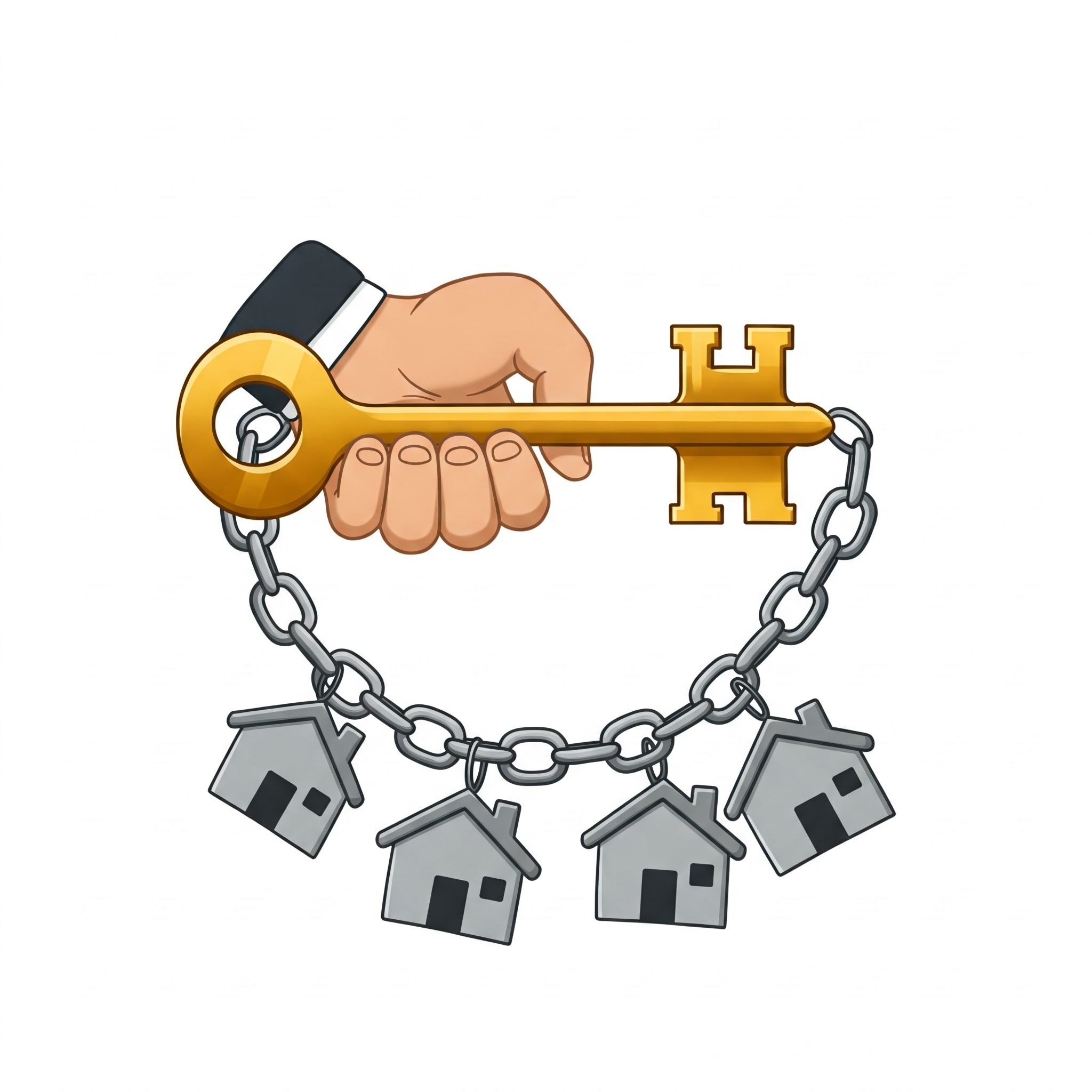Own
Definition
Own is a verb, adjective, and pronoun. As a verb, it refers to possessing or having something as property. As an adjective, it denotes belonging to oneself or itself. As a pronoun, it emphasizes personal ownership.
Parts of Speech
- Verb
- Adjective
- Pronoun
Pronunciation
American English
- IPA Pronunciation: /oʊn/
- Respelling: OHN
British English
- IPA Pronunciation: /əʊn/
- Respelling: OHN
Etymology
The word "own" originates from Old English "āgen," meaning "possessed" or "one's own," derived from Proto-Germanic "*aiganą" (to possess) and Proto-Indo-European "*aik-" (to master or possess). Its use as both a verb and adjective has been consistent since Old English.
Derivatives
- Owner (noun)
- Ownership (noun)
- Ownable (adjective)
- Self-own (noun, informal)
- Owned (verb, past tense)
Synonyms
- Possess
- Hold
- Control
Antonyms
- Lose
- Lease
- Borrow
Usage
The term "own" is used to emphasize possession or individuality. As a verb: "She owns a car." As an adjective: "He has his own house." As a pronoun: "This idea is my own."
Related Terms
- Property: Something owned by someone.
- Possession: The state of owning something.
- Title: Legal ownership of property.
Detailed Definitions
Verb
- To possess or have as property: Refers to legally or personally holding ownership.
- Example: "She owns several properties in the city."
- To admit or acknowledge: Used figuratively to mean taking responsibility.
- Example: "He owned up to his mistakes."
Adjective
- Belonging to oneself: Refers to something that is personally possessed.
- Example: "She prefers living in her own apartment."
Pronoun
- Used for emphasis: Refers to something belonging to oneself or itself.
- Example: "This idea is my own."
own



🇨🇳 Mandarin
- 拥有 (yōngyǒu) - to own
- IPA Pronunciation: /jʊŋ˨˩˦jou˧˥/
- Respelling in English: yung-you
- 自己的 (zìjǐ de) - own (as an adjective)
- IPA Pronunciation: /tsz̩˥˩t͡ɕi˥˩ tə/
- Respelling in English: zi-ji deh
🇮🇳 Hindi
- अपना (apnaa) - own (as an adjective)
- IPA Pronunciation: /əpnaː/
- Respelling in English: up-naa
- मालिक (maalik) - to own
- IPA Pronunciation: /maːliːk/
- Respelling in English: ma-lik
🇪🇸 Spanish
- poseer - to own
- IPA Pronunciation: /poseˈeɾ/
- Respelling in English: po-seh-er
- propio - own (as an adjective)
- IPA Pronunciation: /ˈpropjo/
- Respelling in English: pro-pyo
🇫🇷 French
- posséder - to own
- IPA Pronunciation: /pɔ.se.de/
- Respelling in English: po-seh-deh
- propre - own (as an adjective)
- IPA Pronunciation: /pʁɔpʁ/
- Respelling in English: prop-r
🇸🇦 Modern Standard Arabic
- يملك (yamlik) - to own
- IPA Pronunciation: /jamlik/
- Respelling in English: yam-lik
- خاص (khaas) - own (as an adjective)
- IPA Pronunciation: /xaːsˤ/
- Respelling in English: khaas
🇧🇩 Bengali
- মালিক (maalik) - to own
- IPA Pronunciation: /malik/
- Respelling in English: ma-lik
- নিজের (nijer) - own (as an adjective)
- IPA Pronunciation: /nid͡ʒer/
- Respelling in English: ni-jer
🇷🇺 Russian
- владеть (vladet') - to own
- IPA Pronunciation: /vlɐˈdʲetʲ/
- Respelling in English: vla-dyet
- собственный (sobstvennyy) - own (as an adjective)
- IPA Pronunciation: /sɐpstˈvʲenːɨj/
- Respelling in English: sob-stven-ny
🇵🇹 Portuguese
- possuir - to own
- IPA Pronunciation: /pɔsiˈujɾ/
- Respelling in English: pos-see-uhr
- próprio - own (as an adjective)
- IPA Pronunciation: /ˈpɾɔpɾiu/
- Respelling in English: pro-priu
🇮🇩 Indonesian
- memiliki - to own
- IPA Pronunciation: /məliki/
- Respelling in English: me-lee-kee
- sendiri - own (as an adjective)
- IPA Pronunciation: /səndiri/
- Respelling in English: sen-dee-ree
🇩🇪 German
- besitzen - to own
- IPA Pronunciation: /bəˈzɪtsn̩/
- Respelling in English: be-zits-en
- eigen - own (as an adjective)
- IPA Pronunciation: /ˈʔaɪ̯ɡŋ̍/
- Respelling in English: ai-gen
🇯🇵 Japanese
- 所有する (shoyuu suru) - to own
- IPA Pronunciation: /ɕojoː suɾu/
- Respelling in English: sho-yoo soo-ru
- 自分の (jibun no) - own (as an adjective)
- IPA Pronunciation: /d͡ʑibɯ̟β no/
- Respelling in English: ji-bun no
🇻🇳 Vietnamese
- sở hữu - to own
- IPA Pronunciation: /ʂə˧ hɨə̌w/
- Respelling in English: so hew
- của riêng - own (as an adjective)
- IPA Pronunciation: /kɨə̯˧˥ ziəŋ˧˧/
- Respelling in English: kua rieng
🇰🇷 Korean
- 소유하다 (soyu-hada) - to own
- IPA Pronunciation: /sojuhada/
- Respelling in English: so-yoo-ha-da
- 자신의 (jashin-ui) - own (as an adjective)
- IPA Pronunciation: /dʑaɕhinui/
- Respelling in English: ja-shin-oo-ee
🇹🇷 Turkish
- sahip olmak - to own
- IPA Pronunciation: /sahip olmak/
- Respelling in English: sa-hip ol-mak
- kendi - own (as an adjective)
- IPA Pronunciation: /kɛndi/
- Respelling in English: ken-di
🇵🇰 Urdu
- مالک ہونا (maalik hona) - to own
- IPA Pronunciation: /maːlɪk ɦoːnaː/
- Respelling in English: ma-lik ho-na
- اپنا (apna) - own (as an adjective)
- IPA Pronunciation: /əpnaː/
- Respelling in English: up-naa





